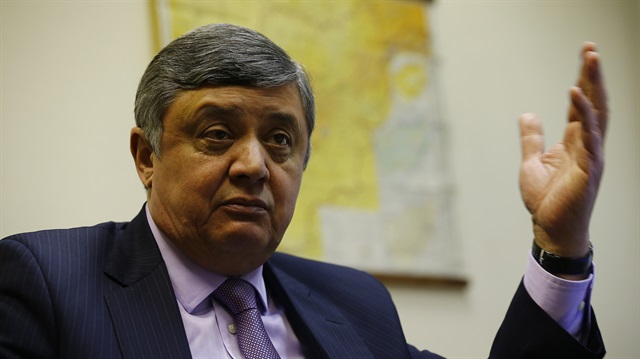
Moscow has been more inclusive in peace process by inviting all stakeholders, says presidential envoy to Afghanistan
The U.S. prefers acting solo in the Taliban reconciliation process and does not take into account interests of Afghanistan's regional partners and neighbors, the Russian presidential envoy to Afghanistan said.
In an interview to Anadolu Agency, Zamir Kabulov said Moscow has been more inclusive in the process by inviting Washington in collective efforts to resolve the situation in Afghanistan.
The latest attempt was an invitation to the U.S. to a meeting in Moscow, the diplomat said.
The Moscow meeting was to be held on Sept. 4, but late in August Afghan President Ashraf Ghani proposed to postpone it because of a reshuffle in the government's power bloc.
Some experts voiced concern over possible refusal of the Taliban to come to Moscow once the meeting has been rescheduled to the convenience of the Kabul government, as the militant group does not recognize the present government in Afghanistan.
Nevertheless, Kabulov said Moscow expected Taliban to show up as the meeting provides a "unique opportunity" for dialogue with representatives of Afghanistan's neighbors and allies.
A particular hindrance to the meeting is the new Afghanistan National Security Council head Hamdullah Mohib. The 35-year-old is more west-oriented and not interested in an interaction with Moscow, political observers say.
Mohib previously represented Afghanistan as the country's ambassador to the United States. Mohib received a Western education and is married to a U.S. citizen Lael Adams, who is an expert on Afghanistan.
“Hanif Atmar (whom Mohib replaced at the office) was a strong and influential figure in the leadership of Afghanistan. His departure will undoubtedly affect the work of the office of the National Security Council, which also dealt with issues of national reconciliation," Kabulov said.
Responding to the U.S. State Department statement on the absence of significant results of the first meeting in Moscow regarding the Afghan peace process, Kabulov said: "The indisputable achievements of the Moscow meeting in April 2017 are: the recognition by participants of the futility of using force on the armed opposition, the need to find a pan-Afghan agreement by political means, and the collective appeal voiced by Afghanistan and regional countries to the Taliban movement to abandon armed confrontation."
"From the events held under the auspices of the United States, we do not see even such small steps that would contribute to the launch of the intra-Afghan peace process," Kabulov said.
Kabulov rejected the U.S. refusal for attending the Moscow meeting on the pretext that the Afghan side was not leading it.
“This thesis seems far-fetched to us, because the meeting was scheduled under the joint chairmanship of the Russian and Afghan delegations, as Washington was informed. Apparently, Americans participate only in such meetings, which are held under their leadership and meet the interests of the United States," he added.
At the same time, Kabulov, acknowledged that the U.S. is a key player in Afghanistan because of its military presence, leadership of the NATO mission in the country, and financial assistance to the Kabul government.
"It is no coincidence that the Taliban movement declares its readiness to negotiate peace with them (the U.S.), not with Kabul, with a precondition of the withdrawal of foreign, primarily American, troops from the country," he said.














